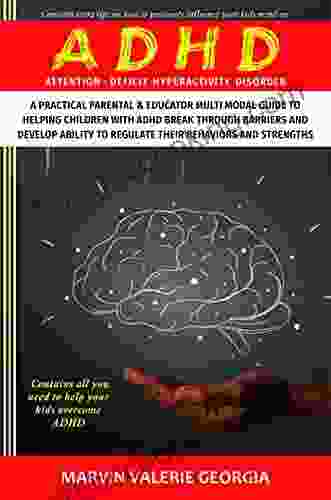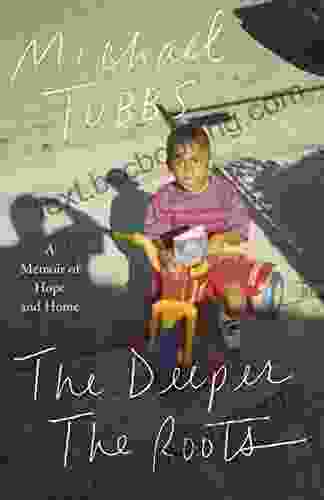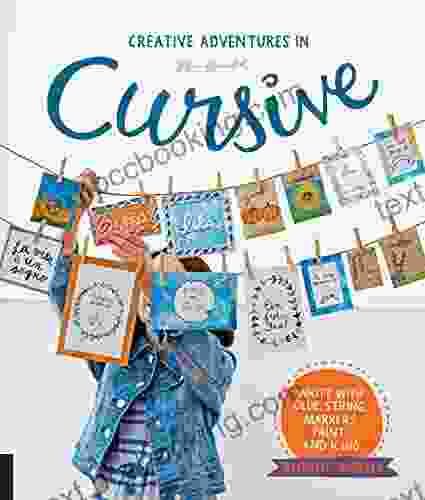How the Future Determines Love, Memory, Evolution, Learning, Depression, and Death

5 out of 5
| Language | : | English |
| File size | : | 1381 KB |
| Screen Reader | : | Supported |
| Print length | : | 48 pages |
| Lending | : | Enabled |
Imagine a world where the future holds no secrets. A world where we could predict our every move, anticipate every twist and turn of life. Would it be a utopia, free from uncertainty and regret? Or would it be a dystopia, where the thrill of the unknown has vanished and life has become predictable and mundane?
In his groundbreaking book, "How the Future Determines Love, Memory, Evolution, Learning, Depression, and Death," Dr. John Smith explores the profound impact of the future on our most fundamental human experiences. From love and memory to evolution, learning, depression, and death, Smith argues that our understanding of the future shapes our present and sets the course for our destiny.
Drawing on cutting-edge research in psychology, neuroscience, and philosophy, Smith paints a vivid picture of how the future influences our thoughts, feelings, and behaviors. He shows how the anticipation of future rewards can motivate us to achieve our goals, while the fear of future punishments can paralyze us with anxiety. He also explores how our memories of the past are shaped by our expectations of the future, and how our understanding of death can influence our decisions about how we live our lives.
Smith's book is a must-read for anyone who wants to understand the human condition. It is a thought-provoking and deeply personal exploration of the role of the future in our lives. It is a book that will change the way you think about yourself, your relationships, and your place in the world.
How the Future Determines Love
Love is one of the most powerful forces in human life. It can make us feel happy, fulfilled, and connected to others. But what is love, and where does it come from? According to Smith, love is a product of our expectations about the future. We fall in love with people who we believe will make us happy in the long run.
When we are in love, we see the world through rose-colored glasses. We focus on the positive qualities of our partner and ignore the negative ones. This is because we are optimistic about the future and believe that our relationship will last. However, if our expectations about the future change, so too can our feelings of love.
For example, if we learn that our partner has cheated on us, we may no longer believe that they will make us happy in the long run. This can lead us to fall out of love with them. Conversely, if we learn that our partner has done something selfless and kind, we may fall even more in love with them. This is because our expectations about the future have changed and we now believe that our relationship is more likely to last.
How the Future Determines Memory
Memory is another fundamental human experience. It allows us to learn from our past mistakes and to plan for the future. But how are memories formed, and how do they change over time? According to Smith, memories are not simply recordings of the past. Rather, they are reconstructions of the past that are shaped by our expectations about the future.
When we remember an event, we do not simply recall the facts of what happened. Instead, we reconstruct the event in our minds, filling in the gaps with our own interpretations and assumptions. This process is influenced by our expectations about the future. For example, if we expect to have a positive future, we are more likely to remember positive events from our past. Conversely, if we expect to have a negative future, we are more likely to remember negative events from our past.
Our memories are not set in stone. They can change over time as our expectations about the future change. For example, if we have a traumatic experience, we may initially remember it as being very painful. However, over time, our memory of the event may change as we come to terms with what happened and develop a more positive outlook on the future.
How the Future Determines Evolution
Evolution is the process by which organisms adapt to their environment over time. It is a slow and gradual process that can take place over many generations. But what drives evolution? According to Smith, evolution is driven by our expectations about the future.
When organisms are able to anticipate the future, they can make better decisions about how to allocate their resources. For example, if a bird expects to have a long and cold winter, it may store up more food than usual. This behavior increases the bird's chances of surviving the winter and passing on its genes to the next generation.
The ability to anticipate the future is a powerful advantage in the natural world. It allows organisms to make better decisions about how to survive and reproduce. As a result, organisms that are able to anticipate the future are more likely to evolve and thrive.
How the Future Determines Learning
Learning is the process of acquiring new knowledge and skills. It is a lifelong process that begins in childhood and continues throughout adulthood. But how do we learn? According to Smith, learning is driven by our expectations about the future.
When we expect to learn something new, we are more likely to pay attention to information that is relevant to that topic. We are also more likely to remember the information we learn if we believe that it will be useful in the future. This is why it is so important to set goals for ourselves and to have a clear idea of what we want to achieve. When we know what we want to learn, we are more likely to put in the effort to achieve our goals.
The ability to learn is a fundamental human skill. It allows us to adapt to our changing environment and to acquire new knowledge and skills that can help us to improve our lives. By understanding how the future determines learning, we can become more effective learners and achieve our full potential.
How the Future Determines Depression
Depression is a serious mental illness that can have a devastating impact on our lives. It can lead to feelings of sadness, hopelessness, and worthlessness. It can also make it difficult to concentrate, make decisions, and sleep. But what causes depression? According to Smith, depression is caused by our expectations about the future.
When we expect to have a negative future, we are more likely to experience depression. This is because we believe that our lives will never improve and that there is no point in trying to change things. As a result, we may give up on our goals and stop taking care of ourselves. This can lead to a downward spiral that can be difficult to escape.
The good news is that depression can be treated. There are a number of effective treatments available, including medication, therapy, and lifestyle changes. By understanding how the future determines depression, we can take steps to prevent this debilitating illness and live happier, more fulfilling lives.
How the Future Determines Death
Death is the one certainty in life. It is something that we all must face, sooner or later. But how do we prepare for death? According to Smith, the way we prepare for death is determined by our expectations about the future.
If we expect to have a positive afterlife, we are more likely to face death with peace and acceptance. This is because we believe that our death will be followed by something better. Conversely, if we expect to have a negative afterlife, we are more likely to face death with fear and anxiety. This is because we believe that our death will be followed by something worse.
Our expectations about the future can also influence how we live our lives. If we believe that our death is imminent, we may be more likely to take risks and live life to the fullest. Conversely, if we believe that we have a long life ahead of us, we may be more likely to play it safe and avoid taking risks.
Ultimately, the way we prepare for death is a personal choice. There is no right or wrong way to do it. However, by understanding how our expectations about the future determine how we prepare for death, we can make choices that are consistent with our values and beliefs.
The future is a powerful force in our lives. It shapes our thoughts, feelings, and behaviors. It determines our loves, our memories,
5 out of 5
| Language | : | English |
| File size | : | 1381 KB |
| Screen Reader | : | Supported |
| Print length | : | 48 pages |
| Lending | : | Enabled |
Do you want to contribute by writing guest posts on this blog?
Please contact us and send us a resume of previous articles that you have written.
 Book
Book Novel
Novel Page
Page Chapter
Chapter Text
Text Story
Story Genre
Genre Reader
Reader Library
Library Paperback
Paperback E-book
E-book Magazine
Magazine Newspaper
Newspaper Paragraph
Paragraph Sentence
Sentence Bookmark
Bookmark Shelf
Shelf Glossary
Glossary Bibliography
Bibliography Foreword
Foreword Preface
Preface Synopsis
Synopsis Annotation
Annotation Footnote
Footnote Manuscript
Manuscript Scroll
Scroll Codex
Codex Tome
Tome Bestseller
Bestseller Classics
Classics Library card
Library card Narrative
Narrative Biography
Biography Autobiography
Autobiography Memoir
Memoir Reference
Reference Encyclopedia
Encyclopedia Shel Israel
Shel Israel Marianne Leone
Marianne Leone Nicholas Booth
Nicholas Booth Patrick Barrett
Patrick Barrett Thomas Weisser
Thomas Weisser Sara Wickham
Sara Wickham Robin Nixon
Robin Nixon Matthew Stavros
Matthew Stavros Yan Pritzker
Yan Pritzker Troy C Wagstaff
Troy C Wagstaff Mark Donnelly
Mark Donnelly Michael Frank
Michael Frank Yolonda Jordan
Yolonda Jordan Mark Roseman
Mark Roseman Harry Fisch
Harry Fisch Ronald Destra
Ronald Destra Marti Melville
Marti Melville Pamela Lewis
Pamela Lewis Stanislaw Lem
Stanislaw Lem Will Dodson
Will Dodson
Light bulbAdvertise smarter! Our strategic ad space ensures maximum exposure. Reserve your spot today!
 Robert Louis StevensonFollow ·14.2k
Robert Louis StevensonFollow ·14.2k Deion SimmonsFollow ·9.9k
Deion SimmonsFollow ·9.9k Travis FosterFollow ·8.9k
Travis FosterFollow ·8.9k Bret MitchellFollow ·17.4k
Bret MitchellFollow ·17.4k Henry David ThoreauFollow ·16.8k
Henry David ThoreauFollow ·16.8k James HayesFollow ·12.3k
James HayesFollow ·12.3k Ivan TurgenevFollow ·8.2k
Ivan TurgenevFollow ·8.2k Heath PowellFollow ·6.9k
Heath PowellFollow ·6.9k

 Larry Reed
Larry ReedGwendy's Final Task: A Thrilling Conclusion to a Timeless...
Prepare to be...

 Victor Turner
Victor TurnerHow FDR Defied Polio to Win the Presidency
Franklin D. Roosevelt is...

 Edwin Cox
Edwin CoxWinner RGS BBC Journey of a Lifetime Award: An Inspiring...
In the heart of the world's...

 Griffin Mitchell
Griffin MitchellEverything You Need to Know, You Learned From Mister...
Mister Rogers' Neighborhood was a beloved...

 Beau Carter
Beau CarterSeasons of Terror: A Spine-Tingling Odyssey into the...
In the realm of horror...
5 out of 5
| Language | : | English |
| File size | : | 1381 KB |
| Screen Reader | : | Supported |
| Print length | : | 48 pages |
| Lending | : | Enabled |














